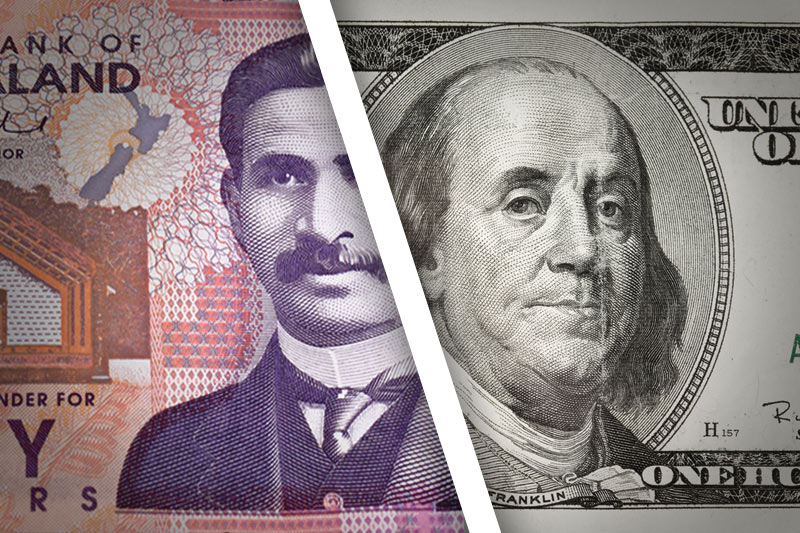Investing.com - The New Zealand dollar surged against its U.S. rival during Thursday’s Asian on the back of supportive comments from Reserve Bank of New Zealand Governor Graeme Wheeler.
In Asian trading Thursday, NZD/USD rose 0.43% to 0.7977. The pair was likely to find support at 0.7909, the low of July 22 and resistance at 0.8054, the high of June 19.
While RBNZ kept borrowing costs at a record low of 2.5% earlier Thursday, traders upped bets the central bank could boost rates as soon as January 2014. It has been widely expected that RBNZ will raise rates early next year, but few market participants expected those rate hikes could come as soon as January.
"Although removal of monetary stimulus will likely be needed in the future, we expect to keep the OCR unchanged through the end of the year," said Wheeler in a statement. "The extent of the monetary policy response will depend largely on the degree to which the growing momentum in the housing market and construction sector spills over into inflation pressures."
RBNZ has frequently pointed to New Zealand’s rising property values as a potential catalyst for higher interest rates. Wheeler has previously intervened in the forex market to weaken the kiwi, but he has not engaged in monetary stimulus as so many of his developed world colleagues have.
On Wednesday, official data showed that New Zealand's trade surplus widened unexpectedly in June, rising to NZD414 million, from a surplus of NZD71 million the previous month.
Analysts had expected the trade balance to swing into a deficit of NZD100 million last month.
Elsewhere, NZD/JPY rose 0.31% to 79.88 while AUD/NZD slid 0.61% to 1.1477.
In Asian trading Thursday, NZD/USD rose 0.43% to 0.7977. The pair was likely to find support at 0.7909, the low of July 22 and resistance at 0.8054, the high of June 19.
While RBNZ kept borrowing costs at a record low of 2.5% earlier Thursday, traders upped bets the central bank could boost rates as soon as January 2014. It has been widely expected that RBNZ will raise rates early next year, but few market participants expected those rate hikes could come as soon as January.
"Although removal of monetary stimulus will likely be needed in the future, we expect to keep the OCR unchanged through the end of the year," said Wheeler in a statement. "The extent of the monetary policy response will depend largely on the degree to which the growing momentum in the housing market and construction sector spills over into inflation pressures."
RBNZ has frequently pointed to New Zealand’s rising property values as a potential catalyst for higher interest rates. Wheeler has previously intervened in the forex market to weaken the kiwi, but he has not engaged in monetary stimulus as so many of his developed world colleagues have.
On Wednesday, official data showed that New Zealand's trade surplus widened unexpectedly in June, rising to NZD414 million, from a surplus of NZD71 million the previous month.
Analysts had expected the trade balance to swing into a deficit of NZD100 million last month.
Elsewhere, NZD/JPY rose 0.31% to 79.88 while AUD/NZD slid 0.61% to 1.1477.
